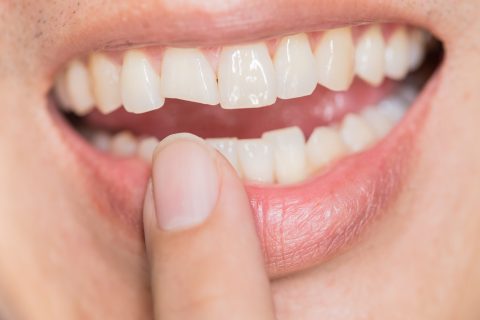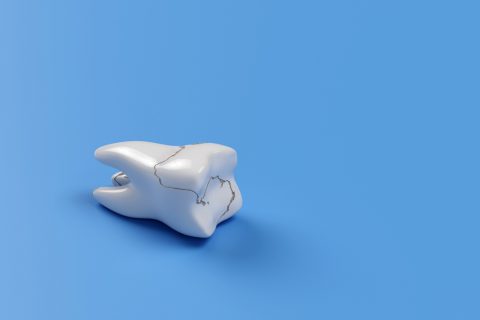The enamel on your teeth is some of the toughest tissue in your body, but it is still vulnerable to chipping and even breaking. A chipped or cracked tooth can happen to anyone at any time. From chewing on hard foods, to grinding your teeth at night, or even occur naturally as you age. Like any cracks, these can join to cause bigger problems with your teeth such as parts breaking off or the whole tooth splitting and needing removal, which is why it is important to see your dentist right away.
Chipped Or Cracked Tooth
Chipped or Cracked Tooth
How do I know if my tooth is chipped or broken?
The symptoms of a cracked tooth can vary according to the size and position of the crack. While not every cracked tooth will lead to symptoms, the more common ones include:
What do I do if I have just chipped or cracked my tooth?
If you have just chipped, fractured or cracked your tooth, here is what you can do after you’ve booked an appointment with us:
What treatment options are available to me?
Treatment depends on the size of the crack, where it’s located, your symptoms, and whether the crack extends into the gum line. Depending on those factors, we may recommend one of the following:
>Bonding
Bonding is a common repair method for broken or chipped teeth, especially small or less complicated chips. Bonding a chipped tooth involves moulding a composite material over the chip and the healthy area of the tooth; first your dentist will roughen up the remaining enamel so the composite will attach properly, then they will attach and shape the bond to create a natural looking cover over your chipped tooth. Finally, the bonding is set with a blue light to harden the material.
>Veneers
If a front tooth is broken or chipped, a dental veneer can make it look whole and healthy again. A dental veneer is a thin shell of tooth-coloured porcelain or resin composite material that covers the whole front of the tooth (much like a false nail covers a fingernail) with a thicker section to replace the broken part of the tooth. If you would like to understand more about veneers you can visit our page here
>Dental Crowns
A dental crown is quite a common dental procedure that provides a full-coverage solution for restoring chipped or broken teeth. Dental crowns can be made to mimic the exact colouring and shape of your other teeth so that it blends in naturally with your smile. To find out more about dental crowns at High Street Dental visit our page here
>Dental Implants
Dental implants are one of the most reliable solutions to permanently replace missing teeth due to injury, tooth decay, or gum disease. If a chipped tooth is beyond saving and is starting to cause you pain and discomfort, a tooth extraction may be required. Once the tooth has been extracted, a dental implant can be inserted with a crown on top, giving you back the natural look and feel of your teeth. To learn more about dental implants at High Street Dental, you can visit our page here
>Root Canal Treatment
If a tooth chip or break is large enough to expose the pulp — the centre of the tooth containing nerves and blood vessels — bacteria from the mouth can enter and infect the pulp. If your tooth hurts, changes colour, or is sensitive to heat, the pulp is probably damaged or diseased. Pulp tissue can die and if it’s not removed, the tooth can become infected and need to be extracted. Root canal therapy involves removing the dead pulp, cleaning the root canal, and then sealing it. To learn more about root canal treatment, you can visit our page here
Need to speak with us? Call (03) 9852 1717
Or contact us by filling out the form below


